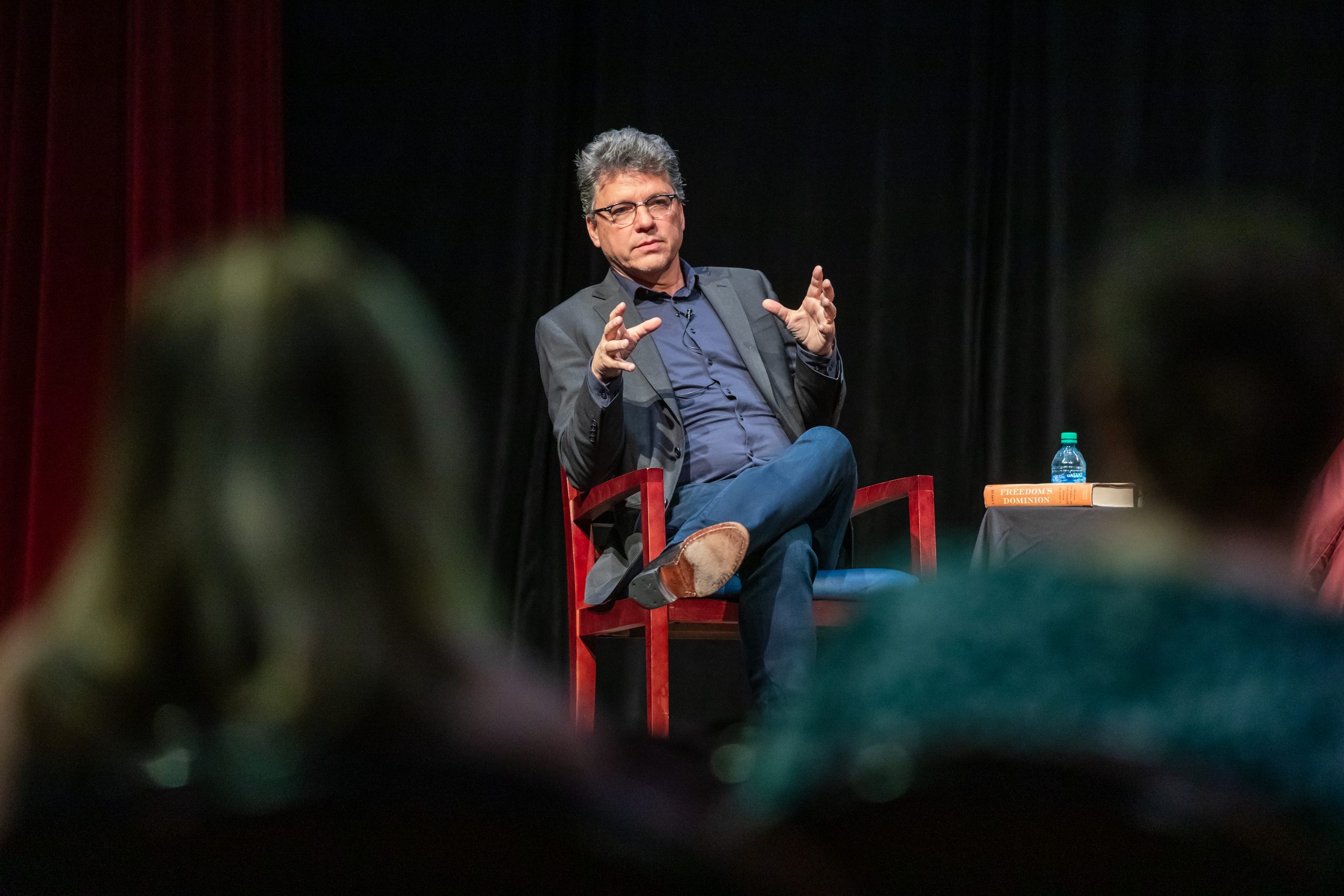Jefferson Cowie, professor and Pulitzer Prize-winning historian from Vanderbilt University, came to Kingston to discuss the resurrection of populism in American politics in recent years.
Cowie’s lecture at the University of Rhode Island concluded the URI Center for the Humanities series titled “Sustaining Democracy.”
Populism is a political ideology, commonly held by the middle and working class, that distinguishes ‘pure people’ and ‘corrupt elites’. This ideology commonly says that the interests of common people are disregarded by elites, according to the British Broadcasting Corporation.
“Populism is the key to victory for anybody who wants to win,” Cowie said. “The sort of more technocratic approach to politics is not effective. Even if you just think about the Democrats that won, they’re like Carter, Clinton, Obama — they’re people who have a resonance with a kind of populist energy.”
The primary portion of Cowie’s lecture handled the use of populism on the American right and how President Donald Trump used it to gain victory in the recent presidential race.
Successful politicians must connect with common sentiments, or basic emotions, rather than relying solely on policy expertise, according to Cowie. This is because they are easier to understand and can be implemented as a political strategy.
These populist patterns cross party lines, with populist messaging proving effective for candidates who authentically address voters’ economic anxieties, according to Cowie.
Throughout the lecture, Cowie covered how the major political parties changed over time and mentioned other points in time where leaders were populist. This included Andrew Jackson’s years of presidency, which lead to ‘Manifest Destiny’ and the ‘Trail of Tears’.
Populism tends to take charge before major shifts in American history, according to Cowie.
Cowie doesn’t consider himself a cheerleader or an activist, but rather an analyst of American historical and political trends, presenting the information he finds.
In regard to the state of American politics under a new presidential administration, Cowie believes nationalism and protectionism could emerge if “current trends continue.”
In the next two years, Americans will either reject Trump’s populist approaches and then ‘Trumpism’ will go down in discouragement, or it will become the new paradigm of American politics, according to Cowie. The latter will make it harder for left-wing ideologies to have representation.
“Throughout American history, populism emerges when people feel the system isn’t working for them anymore,” Cowie said.
The resurgence coincides with growing economic inequality, technological disruption and demographic shifts that have left many Americans feeling disconnected from traditional institutions, according to Cowie.
Political strategists from both parties now face the challenge of harnessing populist energy while developing substantive policy solutions to address complex national problems, according to Cowie.
Candidates’ ability to authentically connect with populist sentiments while offering credible governance plans may determine electoral success going forward, according to Cowie.
Whether this populist moment of history represents neither a temporary phase nor a fundamental realignment of American politics, right now the future remains uncertain, according to Cowie.
At the end of the presentation, the audience was allowed to ask questions and a book signing event for Cowie’s 2022 book “Freedom’s Dominion.”
One audience member asked about why recent democratic candidates, like Sen. Bernie Sanders, who has a ‘populist’ mindset, has come up short to Trump’s take on populism.
Cowie responded that it comes from the broader picture of the Democratic party and how they are seen as too technical and politically professional, he mentioned Democrats are seen as elitists in the eyes of the Republicans. While Trump has resonated with the ‘common’ American.
“I thought that his [Cowie] exploration was fascinating of populism, these grassroots movements, their inherent connection to the anger of a marginalized middle class,” audience member Timothy Iorio-Dodge said.
Iorio-Dodge is a fourth-year history student who found out about the lecture from one of his professors.
“This is a recurring theme, especially something that you know boils over and leads to real political change at these sort of big break point moments in American history,” Iorio-Dodge said.





